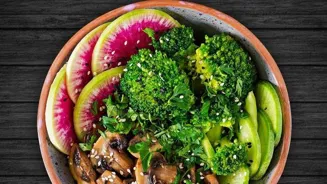Unlock the secrets to a balanced meal plan with 10 essential tips! Dive in for a healthier, happier you!
Eating healthy can feel like climbing Mount Everest, no? So many diets, so much information, it's
enough to make your head spin! But relax, yaar. Creating a balanced meal plan isn't about starving yourself or eating only lauki.
It's about making smart choices that nourish your body and keep you feeling fantastic. We've got ten super simple tips to help you build a meal plan that's both delicious and good for you. Let's dive in!
Know Your Needs, Beta: The Calorie Game
First things first, you've got to understand your body's unique requirements. How many calories do you need each day? This depends on simple stuff like your age, how active you are, and whether you're trying to, you know, lose, gain, or maintain your weight.
There are many online calorie calculators available that can give you a good estimate. Just punch in your details and voila! Remember, this is just a starting point. You might need to adjust based on your own experiences and how your body responds.
And if you're feeling confused, don't hesitate to consult with a registered dietitian. They are the real guru in these matters! Understanding your caloric needs provides a foundation for all your meal planning decisions. It's like knowing how much fuel your car needs before you start a long drive.
Without this knowledge, you might end up running on empty or overfilling the tank.
Dal-Roti Power: Embrace Whole Grains
Say hello to whole grains! Forget those processed white breads and refined pastas. Whole grains like brown rice, whole wheat roti, quinoa, and oats are packed with fiber, vitamins, and minerals. Fiber keeps you feeling full for longer, preventing those pesky mid-afternoon snack attacks.
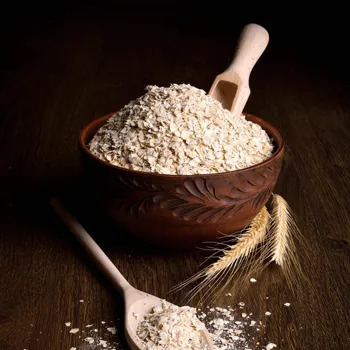
It also helps regulate your blood sugar levels, keeping your energy levels stable. Plus, whole grains are a great source of complex carbohydrates, which provide your body with sustained energy.
Swapping white rice for brown rice or choosing whole wheat bread over white bread is a super easy way to upgrade your diet. Think of whole grains as the building blocks of a healthy meal. They are the foundation upon which you can build a delicious and nutritious eating plan.
They are a staple in Indian cuisine and can be incorporated into almost every meal.
Sabzi Mandi Calling: Load Up on Fruits and Vegetables
Fruits and vegetables are the superstars of a balanced meal plan. They are bursting with vitamins, minerals, antioxidants, and fiber. Aim to fill half your plate with colourful fruits and vegetables at every meal. Think vibrant spinach, juicy tomatoes, crunchy carrots, and sweet mangoes.
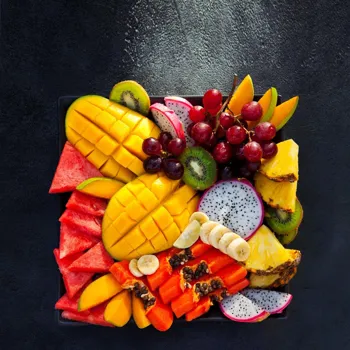
The more variety you eat, the more nutrients you'll get. Don't be afraid to experiment with different types of fruits and vegetables and find the ones you enjoy the most. Roasted vegetables, fruit salads, and smoothies are all great ways to incorporate more fruits and vegetables into your diet.
And remember, fresh is best, but frozen and canned (with no added sugar or salt) are also good options. Fruits and vegetables are not only good for your physical health, but they can also boost your mood and energy levels. So, make them a daily part of your eating plan.
Protein Ka Kamaal: Choose Lean Protein Sources
Protein is essential for building and repairing tissues, keeping you feeling full, and supporting a healthy immune system. Choose lean protein sources like lentils, chickpeas, kidney beans, tofu and low-fat dairy products.
Portion control is important here – you don't need a mountain of protein at every meal. A palm-sized serving is usually sufficient. Try to incorporate protein into every meal to keep your energy levels stable throughout the day.
Lean protein sources are also a good source of iron and other essential nutrients. They are a vital component of a balanced meal plan and should not be neglected. Including ample protein will support a sustained and active lifestyle.
Healthy Tadka: Don't Fear the Fats (the Good Ones!)
Fats sometimes get a bad rap, but healthy fats are actually essential for good health. They support brain function, hormone production, and nutrient absorption. Choose healthy fats like those found in avocados, nuts, seeds, and olive oil.
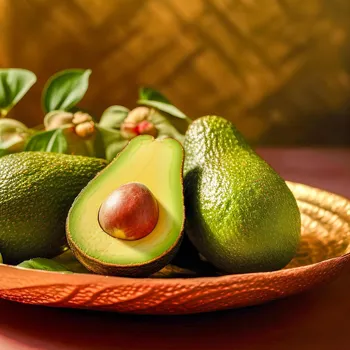
Avoid unhealthy trans fats and limit your intake of saturated fats. Use olive oil for cooking, snack on a handful of almonds, and add avocado to your salad. Remember, moderation is key. You don't need to drench everything in oil. Just a little bit of healthy fat can go a long way.
Healthy fats are an important source of energy and should be included in a balanced meal plan. They also provide essential fatty acids, which your body cannot produce on its own.
Pani Puri: Stay Hydrated, Mere Dost
Water is the elixir of life! It's essential for everything from digestion to temperature regulation. Aim to drink at least 8 glasses of water a day. You can also get fluids from other sources like fruits, vegetables, and herbal teas.

Avoid sugary drinks like sodas and juices, which can actually dehydrate you. Carry a water bottle with you throughout the day and sip on it regularly. Dehydration can lead to fatigue, headaches, and poor concentration. Staying hydrated will keep you feeling energized and focused.
Remember, water is your best friend when it comes to maintaining a healthy body and a balanced meal plan. It is the base of all bodily functions.
Portion Control Is King: Don't Overload the Plate
Even if you're eating healthy foods, consuming too much can lead to weight gain. Be mindful of your portion sizes. Use smaller plates and bowls to help you eat less. Pay attention to your body's hunger and fullness cues. Eat slowly and savour each bite.
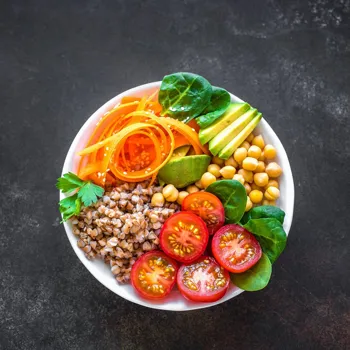
Avoid eating in front of the TV or while working, as this can lead to mindless overeating. Portion control is not about depriving yourself, but about being mindful of how much you're eating. It's about listening to your body and giving it what it needs, but not overdoing it.
Mastering portion control is a key ingredient in creating a balanced meal plan that supports your health and weight goals.
Plan Ahead Guru: Meal Prep is Your Secret Weapon
Life gets busy, and when you're short on time, it's easy to grab unhealthy convenience foods. That's where meal prep comes in! Take some time each week to plan your meals and prepare ingredients in advance. Chop vegetables, cook grains, and portion out snacks.
This will make it much easier to eat healthy even on the busiest days. Meal prep doesn't have to be complicated. Start small by preparing one or two meals in advance each week and gradually increase as you get more comfortable.
Meal preparation reduces the risk of unhealthy dietary choices when time is short.
Read Labels, Bhai: Become a Nutrition Detective
Become a savvy shopper by reading food labels carefully. Pay attention to serving sizes, calories, fat, sugar, and sodium content. Look for foods that are low in saturated and trans fats, added sugars, and sodium. Choose foods that are high in fiber, vitamins, and minerals.
Don't be fooled by misleading marketing claims. Focus on the actual nutrient content of the food. Understanding food labels is an essential skill for anyone who wants to create a balanced meal plan. It empowers you to make informed choices about the foods you're putting into your body.
Be Kind to Yourself Yaar: It's a Journey, Not a Race
Creating a balanced meal plan is a journey, not a destination. Don't expect to be perfect overnight. There will be slip-ups along the way. Don't beat yourself up about it. Just dust yourself off and get back on track. Focus on making small, sustainable changes that you can stick with over time.
Remember, the goal is to improve your overall health and well-being, not to achieve some unrealistic ideal. Be patient with yourself and celebrate your progress along the way. This will help you stay motivated and committed to your healthy eating goals.
Eating healthy should be an enjoyable experience, not a source of stress. So, relax, have fun, and embrace the process!
AI Generated Content. Glance/InMobi shall have no liability for the content